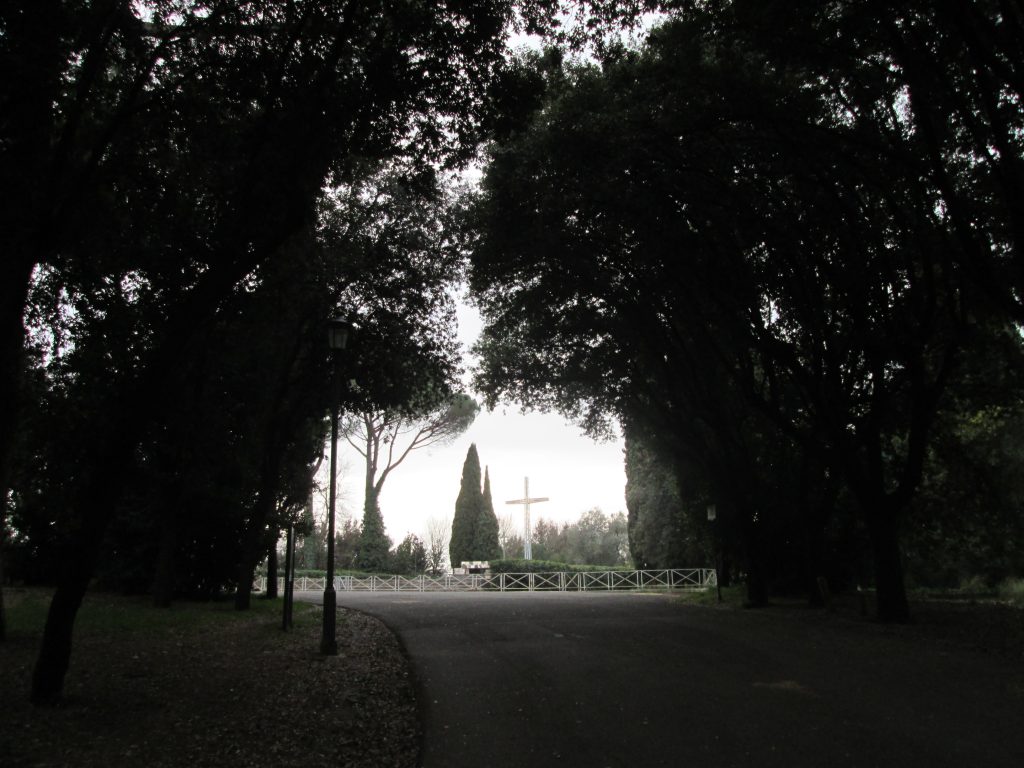
dormito troppo:
la formica di caffè
sul mio pollice
overslept —
the coffee ant
on my thumb
binario 1:
la gran croce bianca del
mendistrillone
platform 1 —
the big white cross
of the hawkbeggar

Roma Termini:
il santo in ciabatte
guarda l’albero
Roma Termini —
the holy man in flip flops
gazes at the Christmas tree
ite missa est:
e fuori l’inferno a
bocca aperta
ite missa est —
and outside hell
gaping wide
notte d’estate:
incollata al lenzuolo
la mia insonnia
summer night —
glued onto the bed sheet
my insomnia
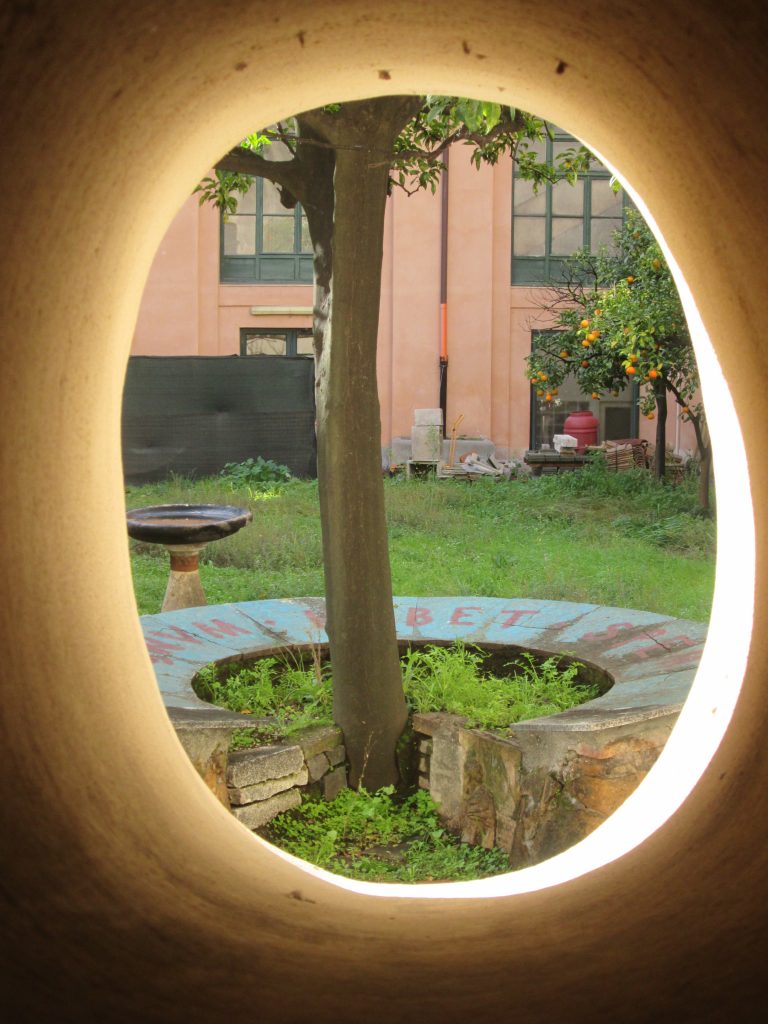
Santo Ignazio:
s’inginocchia il turista
per uno scatto
at Saint Ignatius —
a tourist down on his knees
for another shot
sbianca la luce
gli sbrecchi della tazza:
sera d’inverno
the light whitens
the nicks on the cup —
winter evening
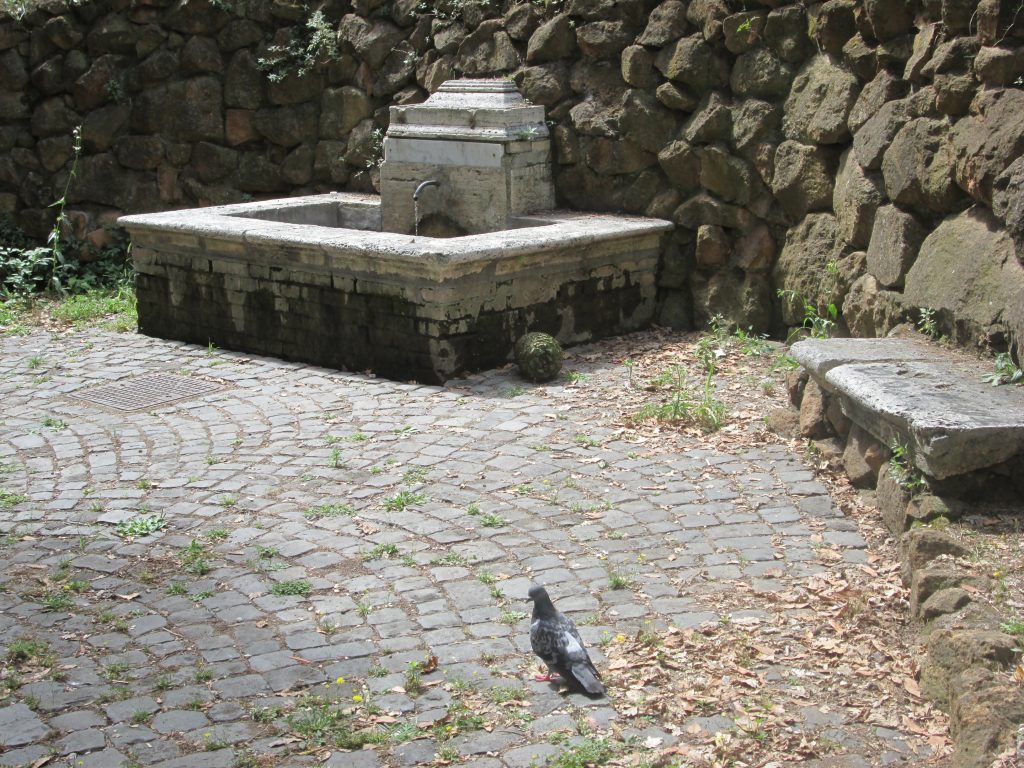
tombola:
l’amore della bimba
per le monete
tombola —
the little girl’s
love of coins
spia paparazzo
dalla finestra
sull’unghia dell’alluce
a paparazzo spies
from the window
on my big toe nail
pesce scontato:
il giorno dopo
saltella ancora
discounted fish —
the day after
it’s still leaping
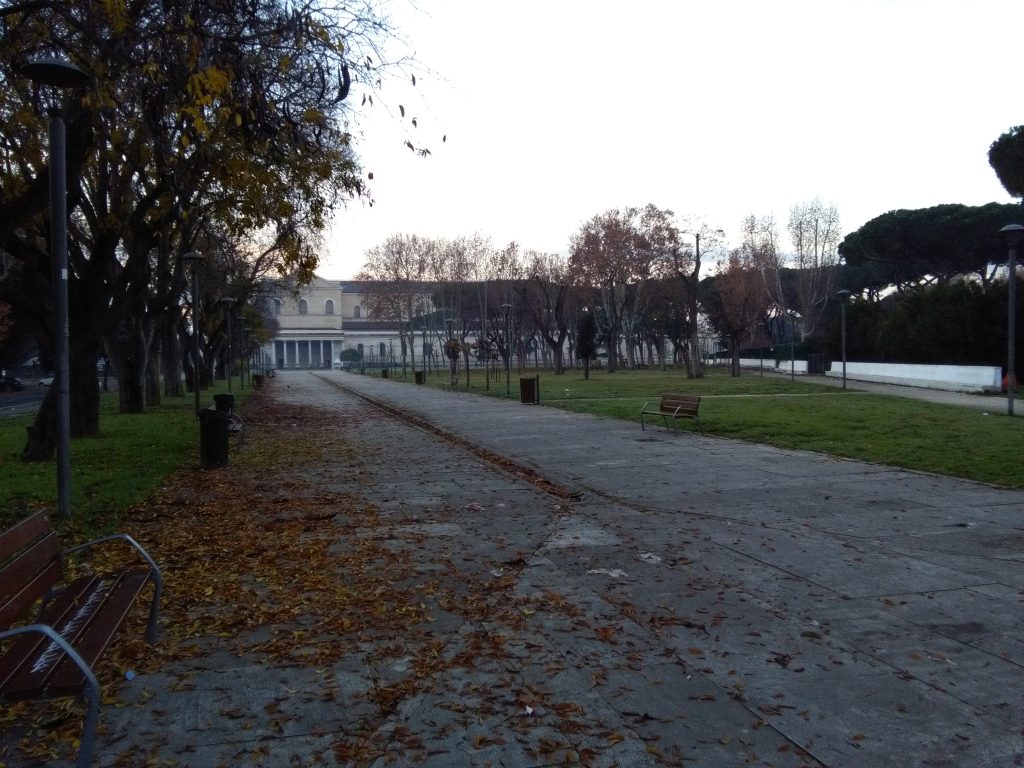
acchiappaspettri:
annoiati a morte
tutti i fantasmi
specterbusters —
all the ghosts
bored to death
penna ïn resta
respingo moscerini
dal volo a zig zag
pen in rest
I repel zig zag
flying gnats
igienizzata
persino la salvietta:
spesa post-Covid
even the Kleenex
gets sanitized —
post-COVID shopping
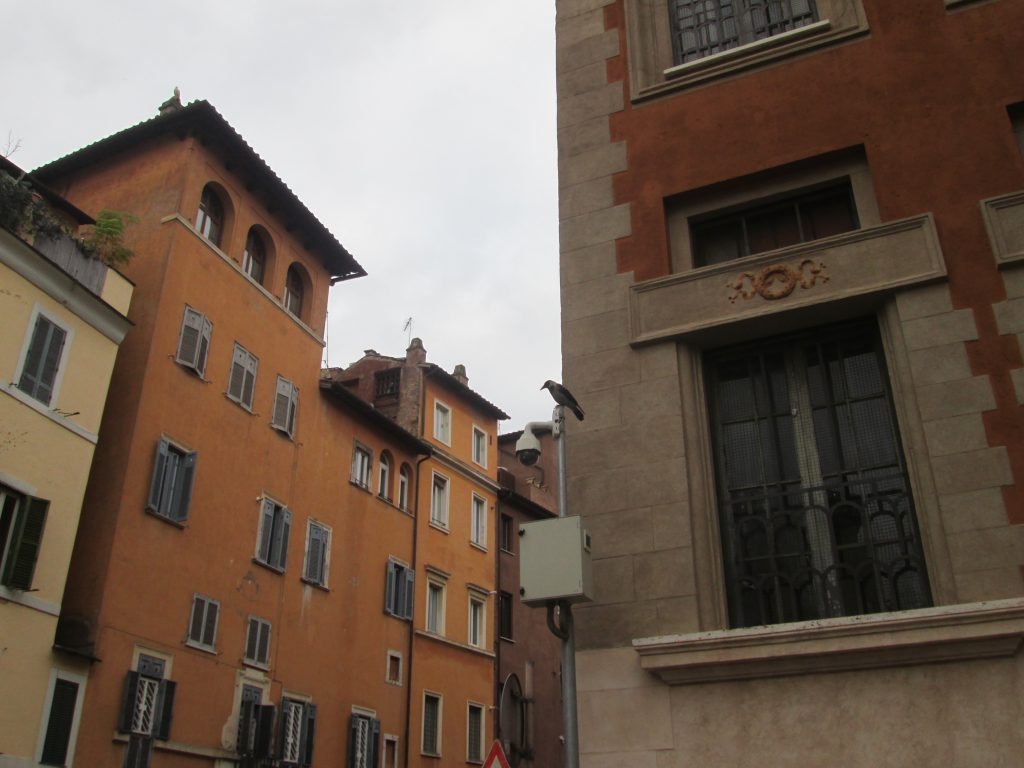
Giorno dei morti:
nel cric croc dei muri
si rispondono
Day of the Dead —
through the creaks and squeaks of walls
they respond to each other
solo d’estate:
persino i ragni hanno
le loro mosche
lonely in summer —
even spiders have
their flies
affreschi a Pisa:
anche Satana soffre
di emorroidi
frescoes in Pisa —
even Satan
suffers from hemorrhoids
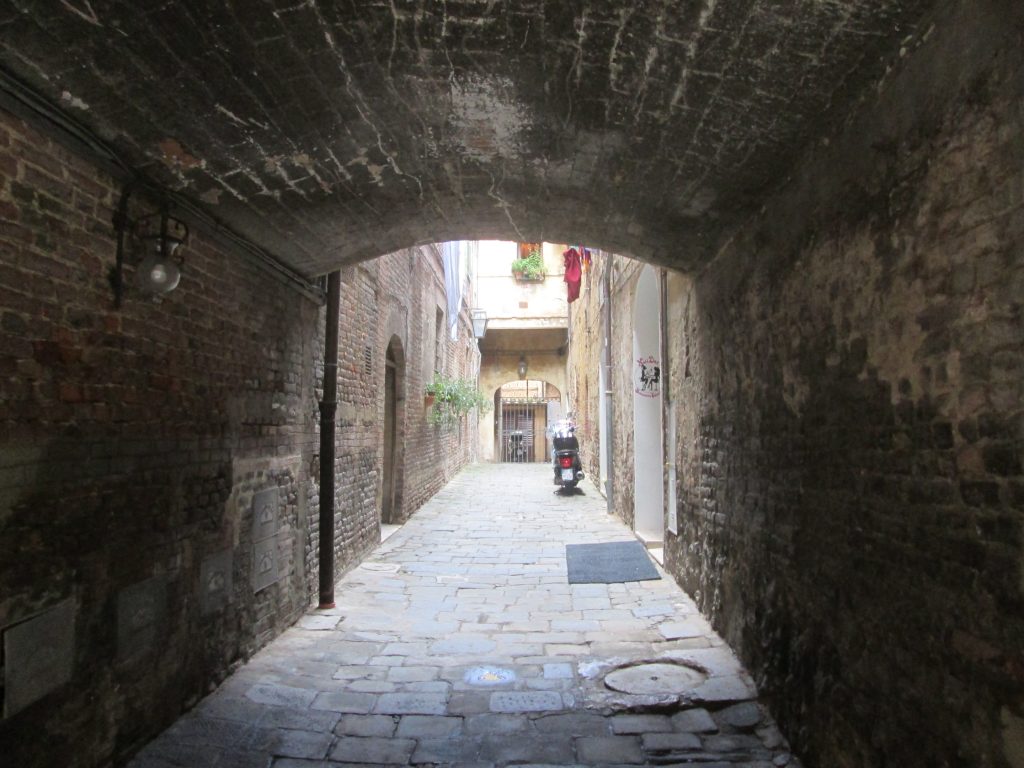
studio medico:
contaballe aggancia
sexy menope
doctor’s office —
fibber hooks up with
menopausal hottie
per il dottore:
al mio turno tocca al
nuovo arrivato
at the doctor’s —
when it’s my turn
the newcomer is up
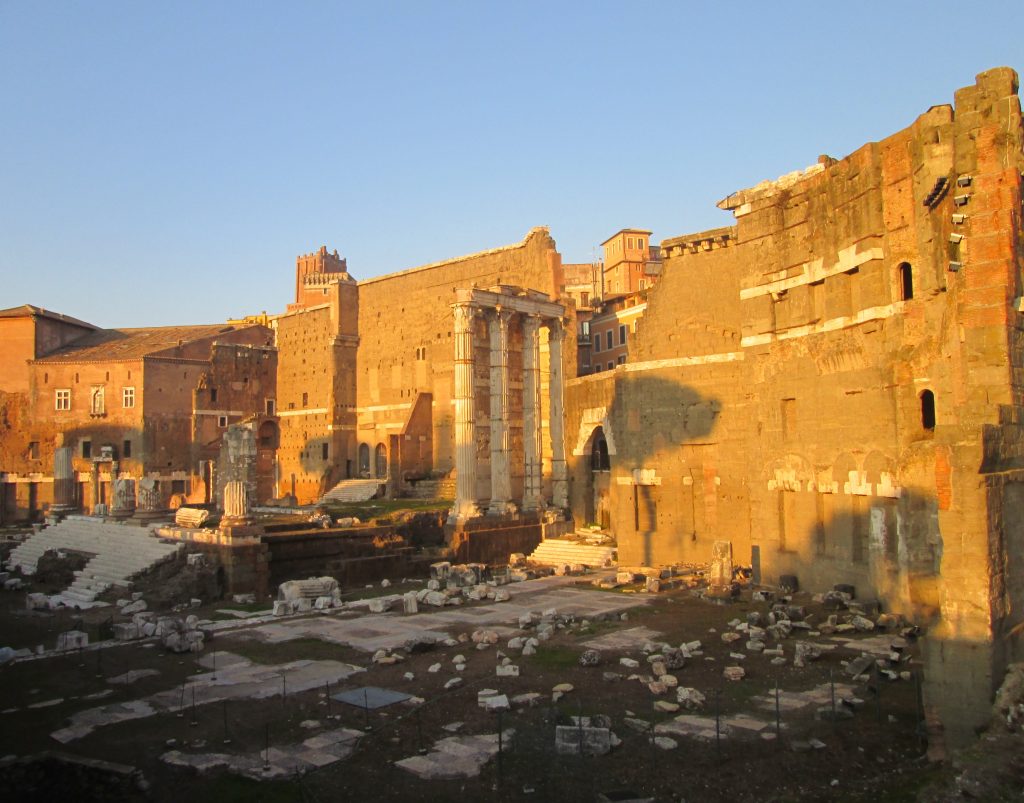
pronto a scattare
parte prima l’allarme
del ranocchio
ready to shoot
the frog alert
goes off first
stasi ardente:
tutt’uno con l’antenna
l’uccello grigio
scorching stasis —
one with the antenna
a gray bird
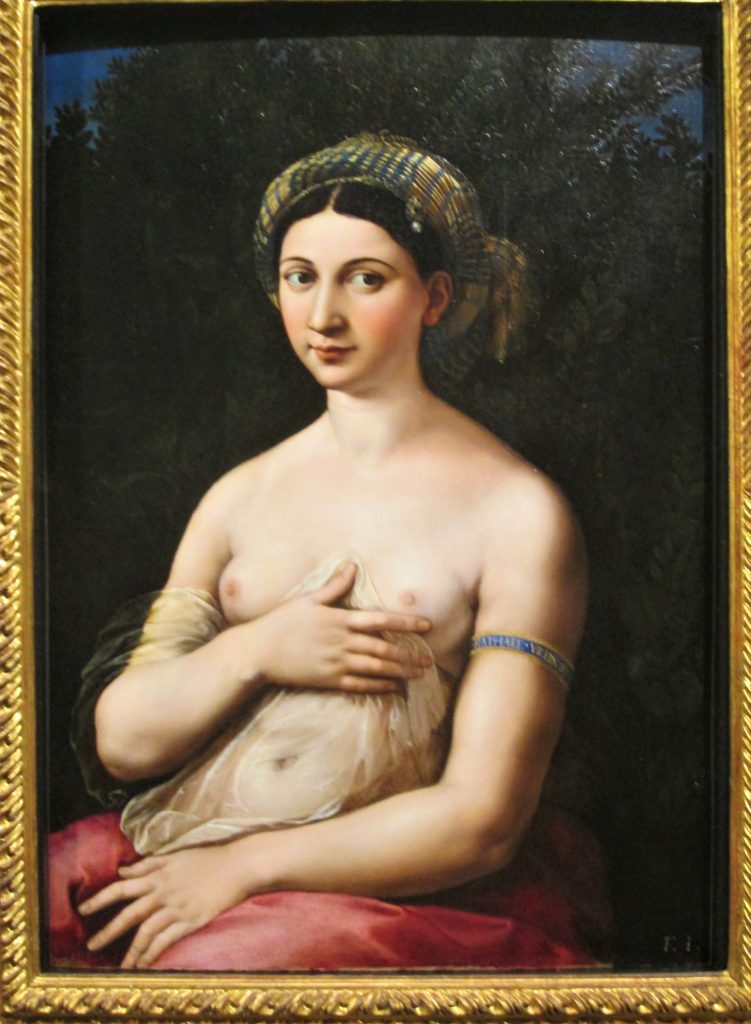
La Fornarina:
la folla si delizia
della tettina
La Fornarina —
the crowd delighted
with the tit-ina
Maurizio Brancaleoni has had poems and short stories published in numerous journals and anthologies. In 2018 he received an MA in Translation Studies with a thesis translating and commenting on Thomas Wolfe’s “Passage to England”. In recent years he localized Adrian C. Louis, Jean Toomer and Justin Phillip Reed. Earlier this month, he put out his first short story collection “New Parables And Other Oddities” after a twelve-year publishing career.

I und|stand the difficulties of truly translating poetry from one language to another, and your translated pieces seem to convey exactly the feelings needed.
Well done my friend!
Thanks a lot for reading and commenting! As a translator, being able to transpose content into another language in all its nuances is crucial for me. Your kind words are greatly appreciated.
Un bello spaccato di vita, passo per passo, tradotto in haiku.
Un vero piacere da leggere e inoltrarsi in questo cammino assieme all’autore.
Grazie mille! Sono felice che ti sia piaciuto questo piccolo viaggio tra haiku e fotografia.
Love the way you mix humor in with the haiku. You’re an inspiration.
Thank you very much! I’m glad you enjoyed my irony-tinged micropoems and I feel honored by your words.
Hello, Maurizio…. I viewed some of your poems, reading the English translations. I notice that you got an MA in England in Translations.
I will read again, later.
I love ‘ Day of the Dead ‘ and twice that you said….
EVEN spiders have their flies/
EVEN Satan suffers…..
Great work, brother.
Have a good weekend.
Thanks a ton for taking the time to read and leave a comment. ‘Day of the Dead’ is one of my favorites too. As for those haiku/lines with ‘even’, I kind of tried to stretch a traditional formula (especially in Issa, for some examples just search ‘even’ here: http://haikuguy.com/issa/) to the point of paradox. Glad you took notice of my attempt to tap into the absurd. Have a great day!
Ho letto con piacere questi lucidi haiku ricchi di pungente ironia sostenuta da una asciutta amarezza.
Arrivano chiari e non lasciano indifferenti.
Complimenti
Un grazie di cuore per l’attenzione che hai voluto dedicare ai miei haiku e per la tua analisi attenta e precisa. Sono felice che siano stati una lettura piacevole.
In paraphrasing, John Ciardi (when translating La Divina Commedia in verse) wrote that it’s like playing the violin while reading music written for the piano. In short, translating is complex, and even more so when it comes to poetry. This is why Richardson (whose translation is considered richer and more successful) chose prose when translating the Comedy. I too am convinced that poetry must be written and read and especially heard in its native language for it to be fully valued and understood.
As such, while the effort I just read above is to be commended, I do find many of what I would label as misses. The nuances and delicacies of one language can hardly ever be carried to another. A concept that can only be understood by those who consider themselves fluent and scholars of both of those languages. In my case, Italian, which is my native language, and English which I started to adopt about 40 years ago at the young age of 24. As I’ve often told my students, especially during the early writing years, nurture and cultivate the native words which is where the authentic voice will eventually merge. Again, I do commend the effort taken by this translator.
Thank you so much for your thoughtful considerations and your kind words! I’m fully aware that the shift from one language to another is never painless. If I had to mention one example, it would certainly be the term ‘mendistrillone’ (a crasis of ‘beggar’ and ‘screamer/newsvendor’) which I tried to reproduce with ‘hawkbeggar’ (a combination of ‘hawker/ambulant seller’ and ‘beggar’). In other cases, such as ‘Day of the Dead/Giorno dei morti’, I think the original poem simply ‘sounds better’, at least on a subjective level, while in a few instances I actually prefer the English version. Please write to me if you have any suggestions as to how these translations could be improved. I’ll certainly take your thoughts into consideration for the future.
Thank you so much for your thoughtful considerations and your kind words! I’m fully aware that the shift from one language to another is never painless. If I had to mention one example, it would certainly be the term ‘mendistrillone’ (a crasis of ‘beggar’ and ‘screamer/newsvendor’) which I tried to reproduce with ‘hawkbeggar’ (a combination of ‘hawker/ambulant seller’ and ‘beggar’). In other cases, such as ‘Day of the Dead/Giorno dei morti’, I think the original poem simply ‘sounds better’, at least on a subjective level, while in a few instances I actually prefer the English version. Please write to me if you have any suggestions as to how these translations could be improved. I’ll certainly take your thoughts into consideration for the future.
There are so many good poems here it’s difficult to choose just one favorite, so I’ll pick 2: First, I can empathize with any meditation on “insomnia”. Second, I love the cleverness of capturing a tourist kneeling before a saint to take a photograph.
Thanks for the compliment! Those two are certainly some of my favorites too. The tourist wasn’t really taking a picture of the saint, but of the richly decorated ceiling in one of the chapels (https://en.wikipedia.org/wiki/Sant%27Ignazio,_Rome), so he had to genuflect on the pew kneeler to get a better shot. I thought it was funny that he kind of had to kneel down ‘against his own will’, even if it was only for a secular purpose. I like your interpretation though! It certainly is in the spirit of the haiku.
Roma Termini —
the holy man in flip flops
gazes at the Christmas tree
LOL I love this one!
Thanks for your comment! That’s a true story, there was a man in flip flops going around the station who really looked like a sort of Indian guru. At a certain point, I caught him intensely gazing at the Christmas tree and I felt he really stood in stark contrast with what had become a symbol of consumerism.